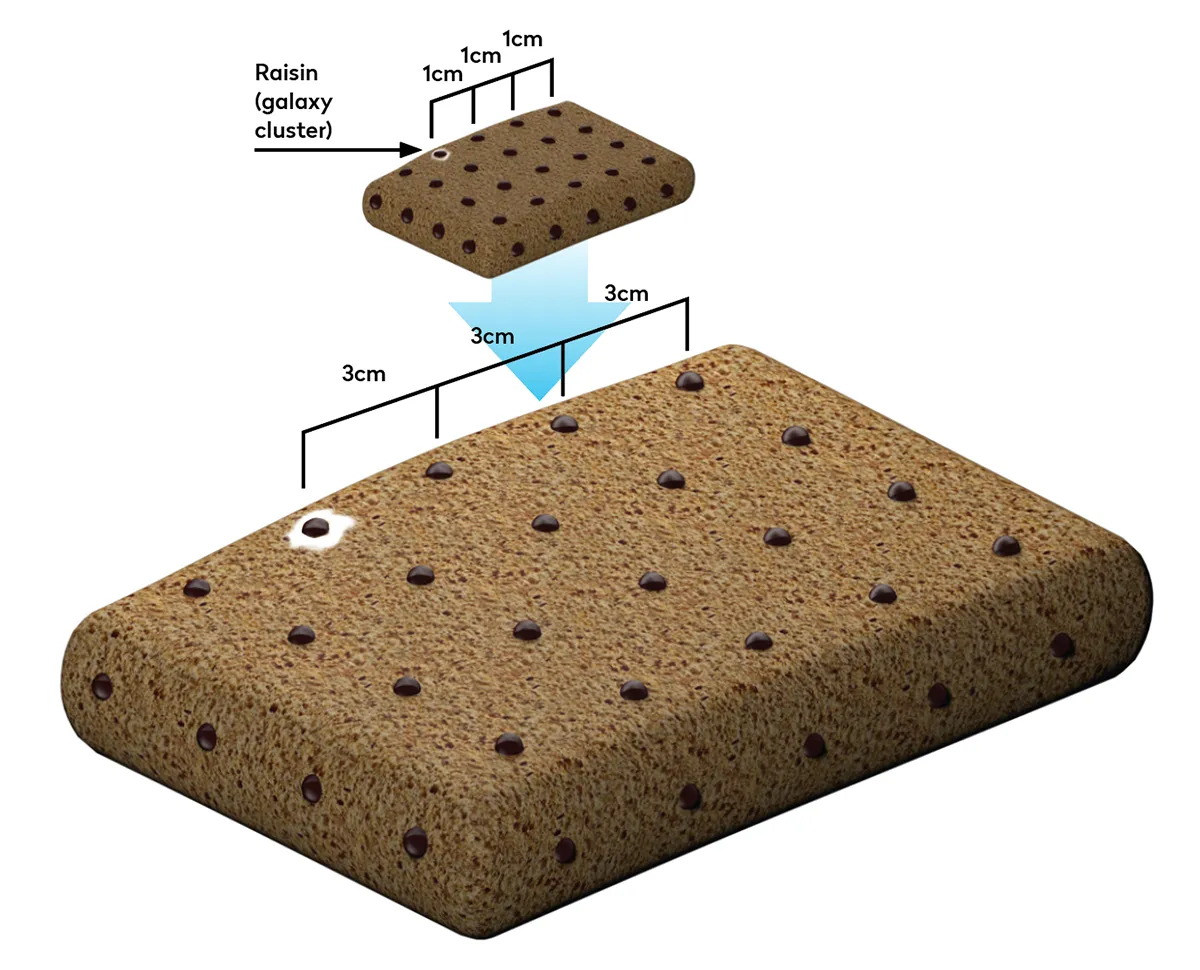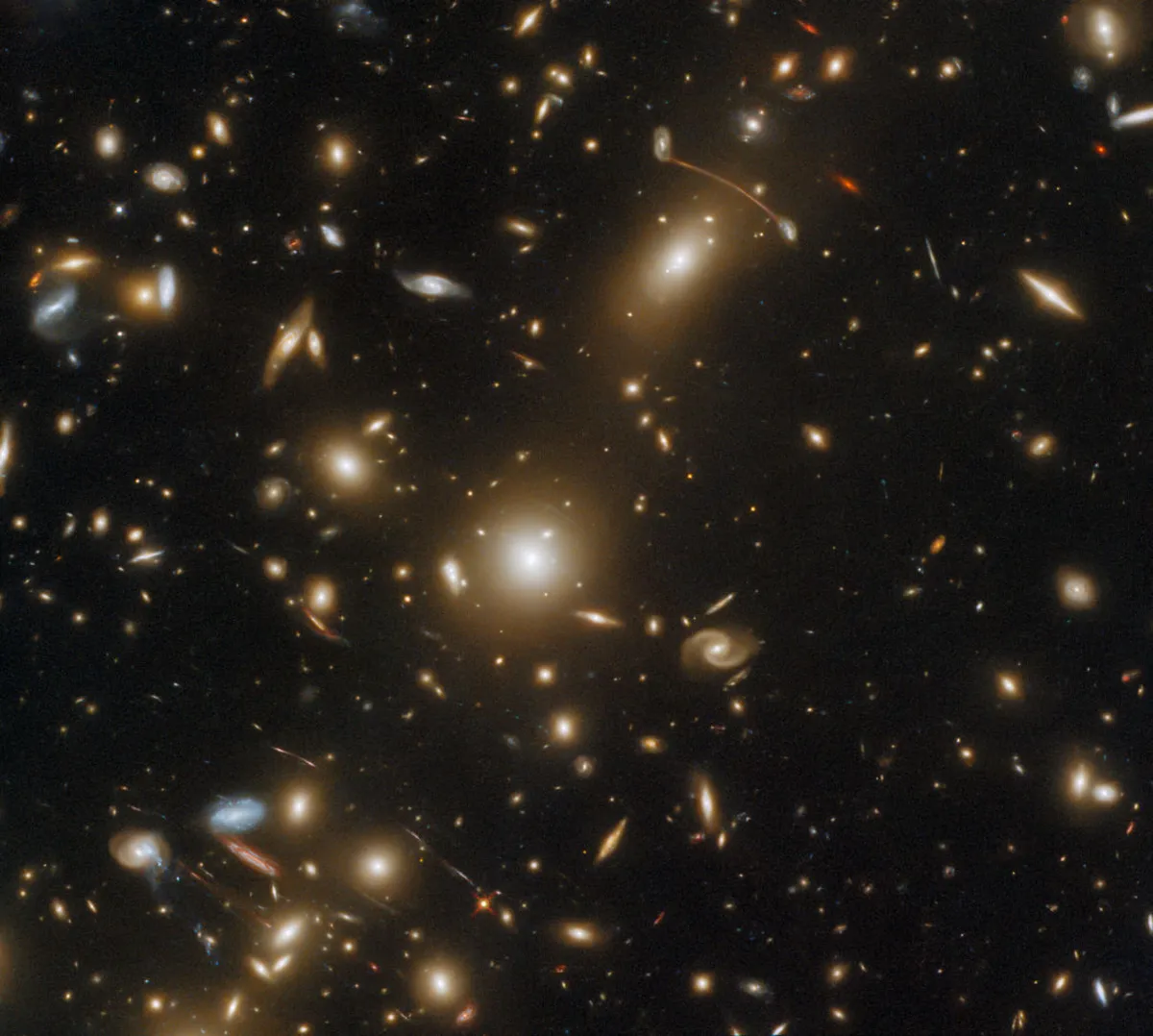Our Universe is huge. In each and every direction on the sky, powerful telescopes observe galaxies whose light took more than 10 billion years to arrive at Earth.
But wait – if we receive such ancient light from two opposite directions, and if the Big Bang happened ‘just’ 13.8 billion years ago, does that mean that the Universe is expanding faster than light?
And wouldn’t that violate Albert Einstein’s theory of relativity, which says that the speed of light is an absolute limit?
The answer may surprise you. But first, we need to take a closer look at the expansion of the Universe.
We know the Universe is expanding because galaxies appear to speed away from each other – their mutual distances are continuously increasing.
We can observe this through the phenomena known as redshift.
But cosmic expansion shouldn’t be pictured as galaxies racing through empty space at incredibly high velocities.
Instead, it is empty space itself that expands, pushing the galaxies ever further away from each other.
A useful comparison to help you imagine this scenario is to think about how a loaf of raisin bread rises in an oven.
Although individual raisins don’t travel around through the dough, they nevertheless end up further away from each other as the dough expands during the baking process.
You get the picture: the dough is empty space; the raisins are the galaxies.
Even if galaxies don’t move around at all, their mutual distances will grow because of the expansion of space.
To represent an infinite Universe, the loaf of raisin bread would have to be infinitely large, but even then the rising dough would push the raisins apart.

So what about the expansion velocity? Well, if two raisins start out at a distance of 1cm apart from each other, and the size of the bread increases by a factor of two in one hour, they will end up being 2cm apart.
As a result, as seen from one raisin, the other one appears to be moving away at 1cm per hour.
But a raisin that was originally further away, say at a distance of 3cm, will end up at 6cm, corresponding to an apparent recession velocity of 3cm per hour.
The same is true for galaxies in the expanding Universe.
Nearby galaxies appear to recede at a slower pace than more distant ones. In other words, cosmic expansion doesn’t have one single velocity.
If you really want to express it in kilometres per second, you need to know what distance you are referring to.
It’s much more useful to quantify the expansion velocity of the Universe as a relative growth rate.
It turns out that space is expanding pretty slowly: at present, cosmic distances increase by just 0.007% in one million years.
Does the Universe expand faster than light? Well, that depends on the scale you’re looking at.

Suppose two galaxies in opposite directions on the sky are 20 billion lightyears apart.
At the current growth rate of the Universe, their distance will increase by 0.007% (corresponding to 1.4 million lightyears) in one million years, which is clearly faster than light.
This rate has changed a bit over the lifetime of the Universe.
So, yes, for really large distances you could say that the Universe is expanding faster than light.
But Einstein wouldn’t mind. His cosmic speed limit only refers to the motion of physical objects through space, from one point in the Universe to some other point.
So in general, the expansion of space has nothing to do with moving objects, and is in no way limited by the velocity of light.
This guide originally appeared in the February 2023 issue of BBC Sky at Night Magazine.
